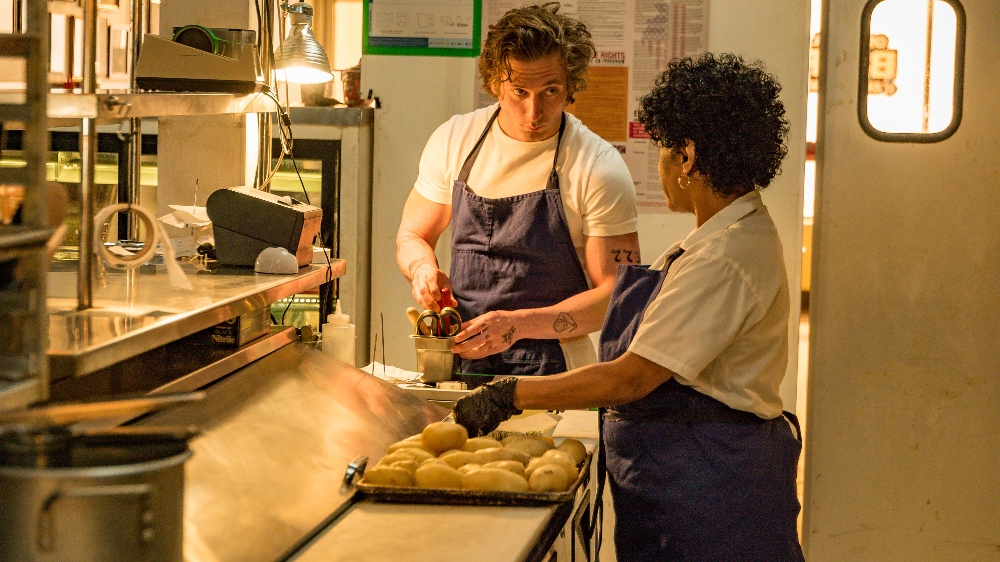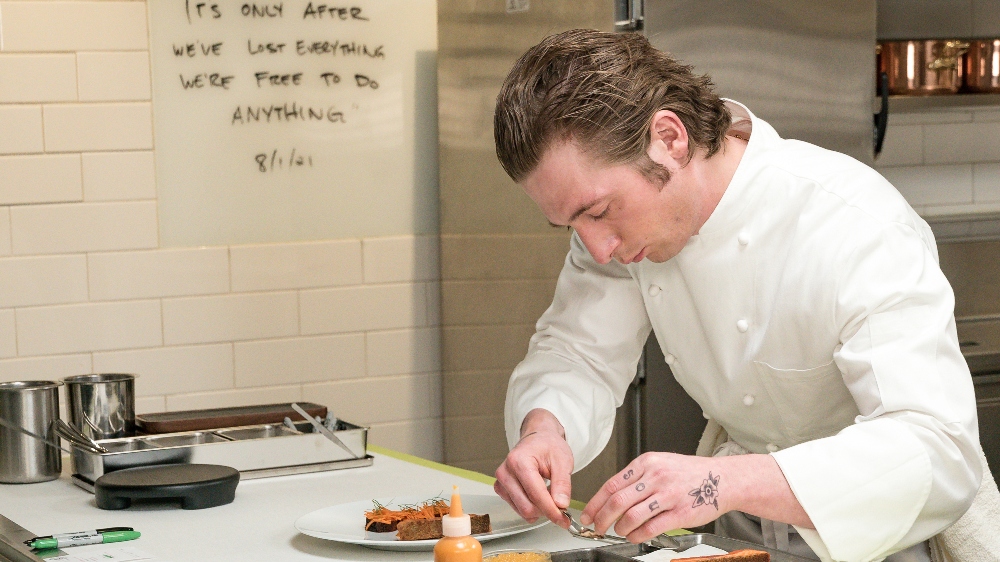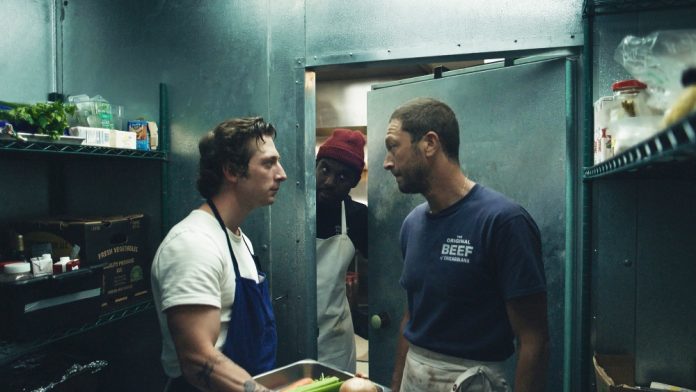My wife and I are like many other couples in that we often enjoy watching TV shows together at the end of the day. We like to mix it up as much as we can, especially since one of us — I won’t say who — has certain restrictions on what she likes to watch. (Okay, I did say who, but surely you would have figured that out.)
The point is that while I consume an enormous amount of televised content, my wife is much pickier. She needs to have a sense of what she’s watching and discern if it’s something that might actually interest her. A whole bunch of other people can be enthusiastic about it, but it’s really got to touch something in her for her to check it out.
It has to be something different, something that isn’t your standard show. It’s got to have depth and gravitas, some originality, with a good story and strong characters. That’s a pretty good recipe. Or, it’s got to be really funny. Nothing cookie-cutter here. No garbage TV and no horror, though somehow, Stranger Things is okay (more about that in a bit). That’s the kind of stuff I can watch on my own, thank you very much. Mrs. Turitz does not waste her time with such trifles. She’s a bit like Goldilocks in this way. A show has to be just right.
Which is fine… because that’s how we ended up watching The Bear on Hulu, a show that we both fell in love with and were sorry to see end. It’s got all that stuff mentioned in the previous paragraph, while also giving us something that felt real. Creator Christopher Storer, who wrote four of the eight episodes and directed five of them, gave viewers a cinema verité fish-out-of-water show about a classically trained chef who comes home to Chicago to take over his late brother’s hole-in-the-wall sandwich shop.

It’s messy and emotional and sometimes it’s laugh-out-loud funny, with a badly flawed main character — played in a true star turn by Jeremy Allen White, who you might know as Lip from 11 seasons of Shameless — and a supporting cast you alternately love and hate, depending on the episode and their antics. The cooking stuff is right out of one of those unscripted shows, and the storytelling doesn’t follow the normal tropes. Everything about it feels fresh, which makes it a special show that we can’t believe didn’t get any Emmy love, or that we have to wait, like, a year for Season 2.
It’s the kind of thing more people should be watching, precisely because of its freshness and originality, not to mention how deeply and satisfyingly entertaining it is. The entertaining part should be enough, but even as we seem to be in the midst of a platinum age of televised content, it’s sort of stunning how much the fresh and original can get lost in the shuffle.
I was talking about this with a friend, and he pointed out something that I hadn’t considered but found myself agreeing with:
there’s a difference between the noun version of “streaming,” and its verb companion.
As my friend put it, “When you talk about streaming something, that’s good. ‘I’m streaming a video or some information to you.’ That’s positive. When you’re talking about it as a noun, as in, ‘This is on streaming,’ it takes on a different connotation.”
The thing is, he’s right. The broadcast networks used to be daring and innovative in their programming before that eventually melded into a stale sameness that permeated everything, though something truly great emerged every now and then. Then cable came along, and while the strength of the programming improved, that, too, ultimately devolved. Some networks, like HBO, continue to maintain a higher level of quality, but even its winning percentage is not what it used to be.
With the rise of streaming, there was yet again a change, starting with Netflix and its groundbreaking House of Cards, which opened the door for all the hundreds of shows we now watch on one of the various services that come to our TV by way of the interwebs. Netflix got out to a huge head start in the Streaming Wars, but in the ensuing years, two things have happened that have changed the game yet again.
The first is the rise of all these other services. Both Amazon and Disney+ are close to Netflix’s numbers, while Hulu and Paramount+, just to name two others, are also doing solid numbers as well. HBO Max could end up being enormously successful, depending on how hard David Zaslav works to gut it, but that’s a separate conversation. What’s important here is the competition that Netflix now has — something that wasn’t a reality even a few years ago.
The second is that, with a few exceptions, such as the aforementioned Stranger Things, Netflix stopped innovating in its programming some time ago. While there is certainly some quality entertainment mixed in, most of what you’re going to get is that same cookie-cutter stuff referenced above — formulaic content driven by an algorithm aimed at the lowest common denominator, like much of the content produced by broadcast networks.

I understand that the idea of a streamer is to keep eyes on the service as long as possible — and, by extension, off that of the competition. Netflix floods the zone with all kinds of shows, paying exorbitant fees to successful creators, many of whom don’t come close to living up to the money they’re paid (though Ryan Murphy‘s deal is finally starting to pay off) in hopes that they can get so much content on the site that no one will want to leave. The thing is, though, shows like The Bear prove that you can actually have your cake and eat it, too.
Yes, chef, it is still possible in today’s entertainment environment to create something genuinely interesting and exciting, which will, by definition, ensure that viewers will stick around to find more “content” just like it. Just because you have a limitless number of hours to fill on your site doesn’t mean you can’t keep bringing innovation and quality storytelling to the masses. If anything, it might actually raise the bar for some viewers who have only been trained to expect less of late.
Look, I’m not suggesting that Storer and Hulu recreated the wheel with The Bear or anything like that. I’m just using it as an example of how to do this right. Someone like Murphy is paid a few hundred million dollars to generate a ton of stuff? Well, that’s exactly what you’re going to get. It’s the age-old philosophy of quantity over quality, which perfectly encapsulates what Murphy has given the company thus far.
For a long time, that kind of thing worked just fine for Netflix. But it won’t continue to work in the future, not with the belt-tightening we’re seeing across the industry. There are perfect examples of how to do it correctly, and they’re easy to find. The Bear is one of them, for its many delicious ingredients add up to a creative stew that tastes — as Goldilocks and her three furry friends might say — just right.
 Neil Turitz is a journalist, essayist, author, and filmmaker who has worked in and written about Hollywood for more than 25 years, though he has never lived there. These days, he splits his time between New York City and the Berkshires. He’s not on Twitter, but you can find him on Instagram @6wordreviews.
Neil Turitz is a journalist, essayist, author, and filmmaker who has worked in and written about Hollywood for more than 25 years, though he has never lived there. These days, he splits his time between New York City and the Berkshires. He’s not on Twitter, but you can find him on Instagram @6wordreviews.
You can read a new installation of The Accidental Turitz every Wednesday, and all previous columns can be found here.



